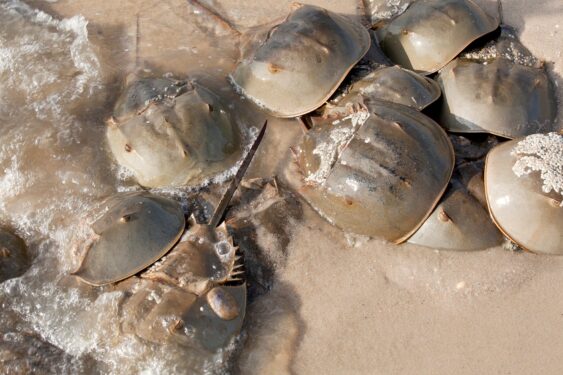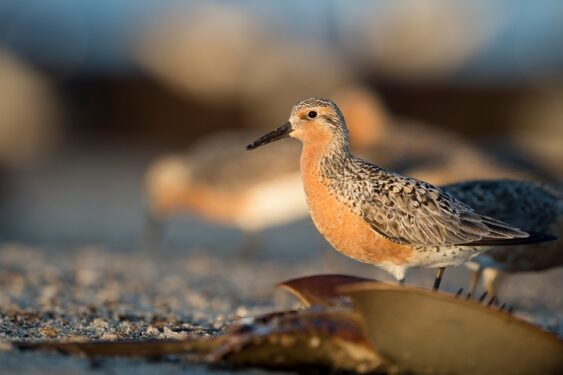Horseshoe Crabs Get a Reprieve - National Humane Education Society
September 6, 2023

The U.S. Fish and Wildlife Service issued a ruling on August 7, 2023, that now restricts the gathering of horseshoe crabs during their spawning season in a national wildlife refuge. The hope is that these efforts will help conserve the species and give them a chance to reproduce. From March 15 to July 15, harvesting horseshoe crabs is no longer permitted in Cape Romain National Wildlife Refuge in South Carolina.
Fishers harvest horseshoe crabs to use as bait and for their blue blood that gets used in medical products. When caught for their blood, their blood gets manually drained, and then they are returned to their environment. However, many horseshoe crabs end up dying in the process. It is estimated that 15% of the crabs die during this bleeding process. Which equaled out to around 112,000 crabs in 2021.

Harvesting these horseshoe crabs is not only affecting their population, but it is also affecting red knot birds. Red knot birds are migratory shorebirds. They are currently listed as threatened under the Endangered Species Act. These birds rely on the horseshoe crabs’ eggs as a vital food source during their long migrations.
With the new ruling prohibiting gathering horseshoe crabs during their spawning season, we can anticipate that they will reproduce and repopulate. There is also an increased chance that red knot birds can start to rebuild their population. The Cape Romain National Wildlife Refuge is now able to serve its purpose and help repair coastal ecosystems.
To learn more about wildlife conservation click here.









We cannot use one species for anything. As I just read, it upsets our Ecosystem, something most people never think about.
Ignorance is no excuse.
You can use my email or name to educate humans.